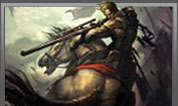Through your different series, there are links that indicate a shared history, particularly between Recluce and the “Parafaith” histories, including a black ordermaster. Will we see a joining of timelines, or are you just going to continue to tease us?
This question, or variants of it, has come up a number of times. The reason is simple. For me, the future cannot ignore the past. So when I write about possible alternative futures in SF, there are always cultural links to the past which alternative futures will share. Second, certain technologies will also exist in various alternatives, such as fusion generators. I’ve chosen to use the same name, rather than use different names in different futures. Third, I address fantasy universes as alternatives to the historical universe, if in the present or the past, and that means links of sorts do exist. As for Cassius, the black ordermage, his story appears in the recently published Viewpoints Critical.





